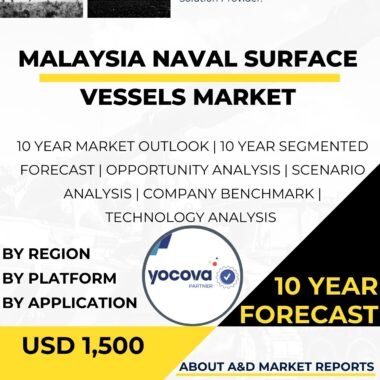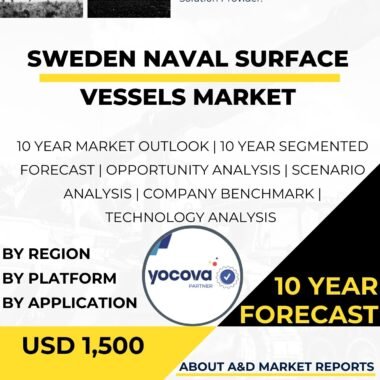Description
Technological Advancements in the Brazil Naval Surface Vessels Market
The Brazil Naval Surface Vessels Market is experiencing significant technological advancements that enhance the capabilities, efficiency, and versatility of its naval fleet. These innovations are critical for addressing Brazil’s evolving maritime security challenges and ensuring the operational effectiveness of its naval surface vessels. Below are the key technological advancements shaping the market:
Advanced Propulsion Systems
Modern naval surface vessels in Brazil are increasingly equipped with cutting-edge propulsion technologies, such as hybrid electric-diesel systems and gas turbine engines. These systems improve fuel efficiency, extend operational range, and enhance maneuverability, enabling vessels to conduct prolonged missions across Brazil’s vast maritime domain. Additionally, quieter propulsion systems reduce acoustic signatures, improving stealth capabilities for anti-submarine warfare and covert operations.
Integrated Sensor and Radar Systems
The integration of advanced sensors and radar systems enhances the situational awareness of naval surface vessels. Phased-array radars, electro-optical/infrared (EO/IR) sensors, and sonar systems enable real-time detection and tracking of threats, including enemy vessels, aircraft, and submarines. These technologies support maritime surveillance, reconnaissance, and early warning, allowing Brazilian naval forces to respond swiftly to potential threats.
Precision Weapon Systems
Naval surface vessels are being equipped with advanced weapon systems, including precision-guided munitions, anti-ship missiles, and surface-to-air missiles. These systems enhance the vessels’ ability to engage targets with high accuracy, minimizing collateral damage. Vertical launch systems (VLS) and modular weapon platforms allow for flexible armament configurations, enabling vessels to adapt to diverse mission requirements, from maritime defense to power projection.
Automation and Unmanned Systems Integration
Automation technologies and the integration of unmanned systems, such as drones and unmanned surface vehicles (USVs), are transforming naval operations. Automated command and control systems streamline decision-making processes, while unmanned systems extend the reach of naval vessels for surveillance, mine countermeasures, and reconnaissance. These advancements reduce crew workload and enhance operational efficiency in complex maritime environments.
Cybersecurity and Electronic Warfare Capabilities
As naval vessels become more digitized, cybersecurity measures are critical to protect onboard systems from cyber threats. Advanced electronic warfare systems, including electronic countermeasures (ECM) and decoy systems, are being integrated to counter enemy radar and missile threats. These technologies enhance vessel survivability in contested environments, ensuring Brazil’s naval forces remain resilient against modern threats.
These technological advancements are pivotal in modernizing Brazil’s naval surface vessels, enabling the country to strengthen its maritime defense capabilities, enhance operational flexibility, and maintain a strategic edge in the region’s contested maritime domain. Continued investment in these technologies will be essential to sustaining the market’s growth and addressing Brazil’s maritime security needs.




